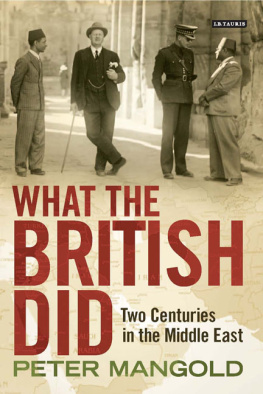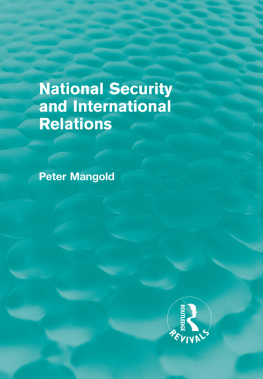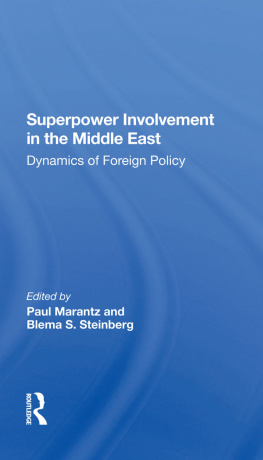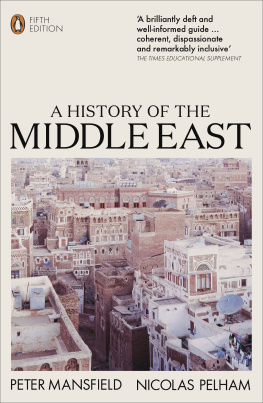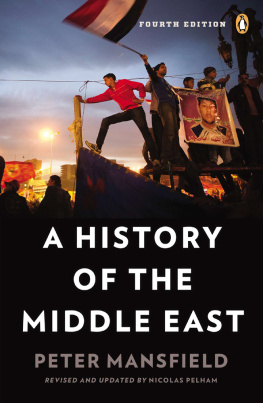Routledge Revivals
Superpower Intervention in the Middle East
Strategically placed on the global chess board, as well as controlling vast oil resources, the Middle East was one of the main theatres of Cold War. In the 1950s the Soviet Union had taken advantage of Arab Nationalists disillusion with British and French Imperialism, along with the emerging Arab-Israeli conflict, to establish relations with Egypt, Syria and Iraq. The United States responded by moving in to shore up the Western position. Confrontation was inevitable. Superpower Intervention in the Middle East was written in 1978, when this confrontation was at its height. The books main theme focuses on how the superpowers became competitively involved in local Middle East conflicts over which they could exercise only limited control, and the risks of nuclear confrontation of the kind which occurred at the end of the 1973 Arab-Israeli war. The threat to Western oil supplies is also examined. This is a fascinating work, of great relevance to scholars and students of Middle Eastern history and political diplomacy, as well as those with an interest in the relationship between the Western superpowers and this volatile region.
Peter Mangold has worked in the Foreign and Commonwealth Office Research Department and the BBC World Service, and is currently Senior Associate Member of St Antony's College, Oxford. He has written widely on international affairs and is the author of National Security and International Relations (Routledge, 1990; Routledge Revivals, 2013).
First published in 1978
by Croom Helm Ltd
This edition first published in 2013 by Routledge
2 Park Square, Milton Park, Abingdon, Oxon, OX14 4RN
Simultaneously published in the USA and Canada
by Routledge
711 Third Avenue, New York, N Y 10017
Routledge is an imprint of the Taylor & Francis Group, an informa business
1978 Peter Mangold
All rights reserved. No part of this book may be reprinted or reproduced or utilised in any form or by any electronic, mechanical, or other means, now known or hereafter invented, including photocopying and recording, or in any information storage or retrieval system, without permission in writing from the publishers.
Publishers Note
The publisher has gone to great lengths to ensure the quality of this reprint but points out that some imperfections in the original copies may be apparent.
Disclaimer
The publisher has made every effort to trace copyright holders and welcomes correspondence from those they have been unable to contact.
ISBN 13: 978-0-415-83096-6 (hbk)
ISBN 13: 978-0-203-49615-2 (ebk)
1978 Peter Mangold
Croom Helm Ltd., 2-10 St Johns Road, London SW11
ISBN 0-85664-543-5
British Library Cataloguing in Publication Data
Mangold, Peter
Superpower intervention in the Middle East.
1. Near East Foreign relations Russia
2. Russia Foreign relations Near East
3. Near East Foreign relations United States
4. United States Foreign relations Near East
I. Title
327.56047 DS63.2.R9
ISBN 0-85664-543-5
Printed in Great Britain
by Redwood Burn Ltd, Trowbridge and Esher
CONTENTS
Beneath the nuclear umbrella, the temptation to probe with regional forces or proxy wars increases.1 Thus Dr Henry Kissinger, speaking in 1976. His argument, as might have been expected from an American Secretary of State, drew heavily on the growth of Soviet conventional and naval power, and on the Soviet Unions expanding global reach. Had he sought doctrinal justification, he would no doubt have been able to draw on the writings of the Commander-in-Chief of the Soviet Navy, Admiral Gorchkov. Gorchkov and other Russians would however add a further perspective to the argument, and point in turn to the size of American conventional mobile forces and to the long history of American interventionary politics going back to the early days of the Cold War. Yet whatever the rival perceptions of where the interventionary initiative may lie, the behaviour of both superpowers provides ample evidence for Dr Kissingers basic contention that various modes of military policy continue to remain open to the superpowers. This despite the very real constraints imposed by the nuclear balance of terror and, outside Europe, by the growth of Afro-Asian nationalism.
The scope for military policy beneath the nuclear umbrella is perhaps most readily evident in the Middle East. This is a region with a long history of domination by external powers, domination the nature of which has also undergone significant change during the twentieth century. In the wake of the collapse of the Ottoman Empire at the end of the First World War, Britain and France acquired League of Nations mandates over Iraq, Palestine, Syria and the Lebanon. A series of bilateral treaties imposed restrictions on the foreign, and by extension also the domestic, policies of Middle Eastern governments, ranging in size and importance from Egypt and Iraq to the sheikhdoms of the Persian Gulf. These restrictions were largely determined by imperial strategic interests. They were enforced by garrisons and locally recruited levies, which in emergency could be reinforced from strategic reserves. As late as 1942 the British Ambassador could surround the Abdin palace in Cairo with armoured cars, and present King Farouk with the choice of installing a pro-British government or of abdication.
Fourteen years later however a major Anglo-French expeditionary force failed ignominiously to overthrow the government of President Nasser. By 1956 the balance of power between Arab nationalism and European imperialism was shifting decisively in favour of the former, undermining the governments on whom the British Empire by treaty system had rested, 2 and, through a combination of political pressure and guerilla harassment, making British land and air bases untenable. The process however was a long and uneven one and it reflected not only the strength of Arab nationalism, in itself an unequal force, but the weakness of the imperial powers of postwar Europe. It began in the eastern Mediterranean, where the French had in 1946 been forced to concede independence to Syria and the Lebanon. The following year Britain abandoned primary responsibility for Greece and Turkey, as well as the Palestine mandate. In 1956, after years of harassment, British troops left the Suez Canal Zone base, and the British effort was henceforth largely concentrated on the conservative Arabian peninsula and Gulf region. Only in 1967 did British troops leave Aden, and in 1971, for reasons which had more to do with domestic economic weakness than immediate Middle Eastern politics, the British presence was largely withdrawn from the Gulf.
The British military withdrawal did not however mark the end of external military involvement in the Middle East, a development any listener to Cairo radio in the mid 1950s might well have anticipated. Rather it meant a change in the identity of the interventionary powers, and in the nature of external military involvement. Soviet-American rivalry, which had begun immediately after the defeat of Germany, made it impossible for an area as strategically important as the Middle East to avoid being drawn into the Cold War. And the acute instability of the Middle Eastern political system as it emerged from imperial tutelage, was such that there were few states which did not quickly begin to look outside the region for arms and protection. These included not only the still numerous conservative states which sought some form of replacement for erstwhile British support but also those nationalist regimes, including Nassers Egypt, which feared Western intervention and also became directly embroiled in the Arab-Israeli conflict.


